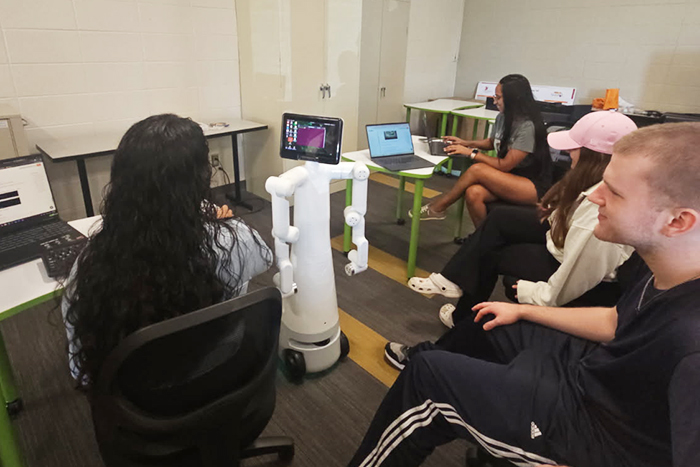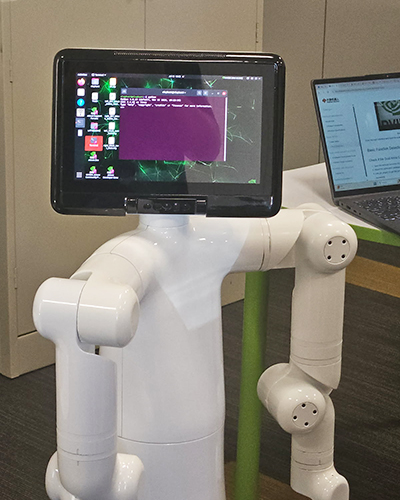Introducing the Computer Information Science Program’s Humanoid Robot
 Of all the technology that Computer Information Science (CIS) majors get to use and learn from, the latest tool just might be the most impressive to date.
Of all the technology that Computer Information Science (CIS) majors get to use and learn from, the latest tool just might be the most impressive to date.
This year, students are working with a new Elephant Robotics Mercury Humanoid.
“Robots are already reshaping the workforce, and students graduating with these skills will have an advantage over those who were not exposed to robotics,” said Cindy Casey, PhD, Assistant Professor and Chair of the Computational Sciences Department. “Skills such as problem-solving, project management, teamwork, coding, creativity, and working across disciplines make students extremely marketable in both the current and future job markets.”
Students are currently using Python programming scripts to move the robot’s arms. Later, they will train it to move across a room, map out its environment, speak, and interact with humans.
 According to Dr. Casey, learning robotics supports critical thinking and problem-solving skills. Robotics also gives students the opportunity to gain hands-on experience solving real-world problems, such as troubleshooting, fault tolerance, and error-handling.
According to Dr. Casey, learning robotics supports critical thinking and problem-solving skills. Robotics also gives students the opportunity to gain hands-on experience solving real-world problems, such as troubleshooting, fault tolerance, and error-handling.
“Robotics combines multiple computer science concepts such as algorithms, programming, embedded systems, and artificial intelligence. Integrating robotics into computer science helps students develop a broader technical skillset across disciplines,” Dr. Casey explained.
Currently, students in the CIS program’s Deep Learning class, as well the Application & Embedded ML class, are working with the robot. CIS majors in any of the program’s three concentrations can take these courses.
However, Dr. Casey encourages students from all majors to learn the basics of robotics. That’s why starting in fall 2026, GMercyU students will have an opportunity to enroll in a special topics pilot course, CIS 299: Introduction to Robotics. The course will be open to students from any major, no prerequisites required.
"Students from any field of study can benefit from learning robotics. From logistics and manufacturing to bomb squad robots, drones, autonomous security robots, and surgical robots, robotics is a fast-growing field,” Dr. Casey said. “Robots are being used in healthcare, education, criminal justice and policing, industry, and accounting. Learning robotics gives students future-ready skills regardless of their major.”